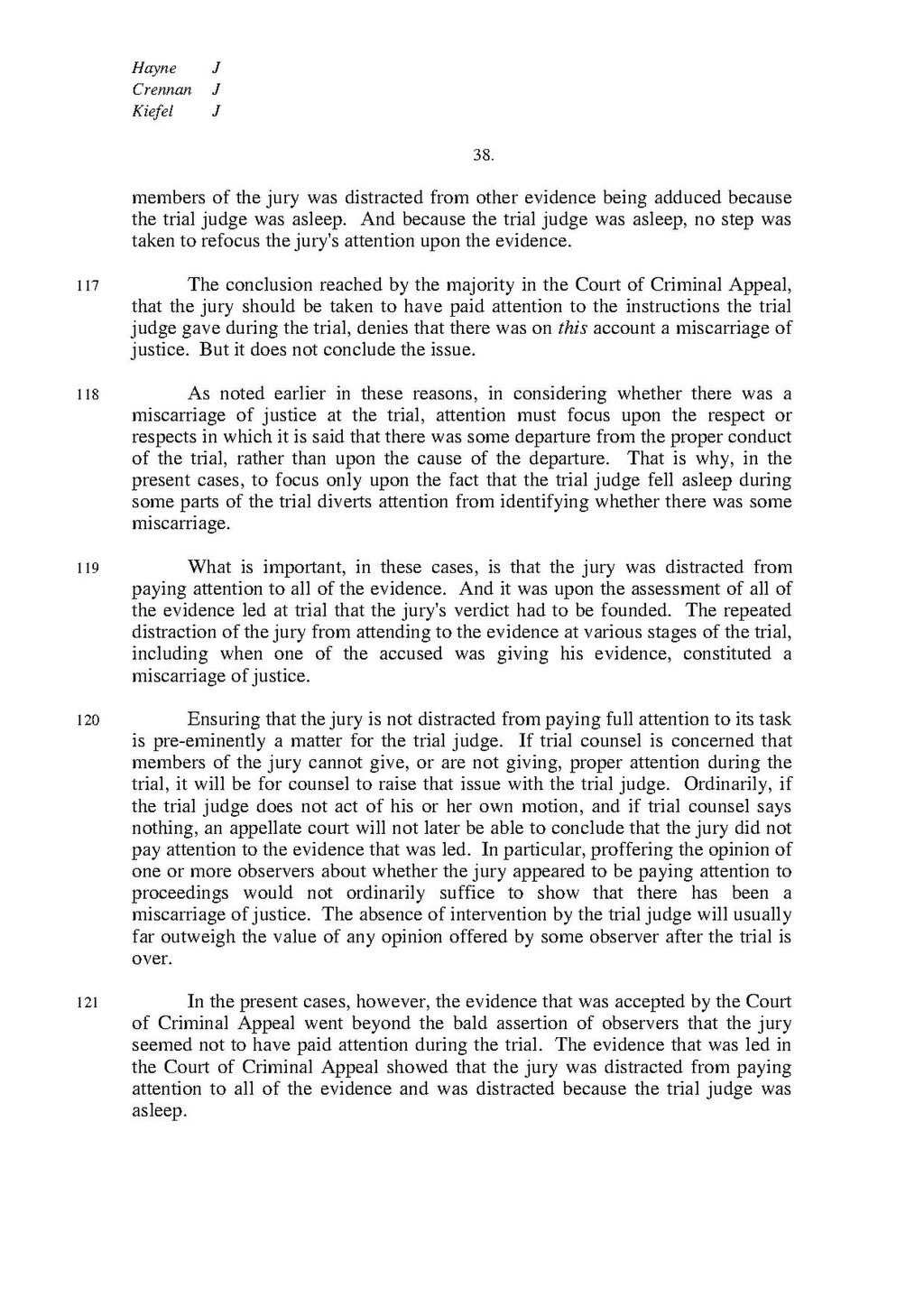Hayne J
Crennan J
Kiefel J
38.
members of the jury was distracted from other evidence being adduced because the trial judge was asleep. And because the trial judge was asleep, no step was taken to refocus the jury's attention upon the evidence.
The conclusion reached by the majority in the Court of Criminal Appeal, that the jury should be taken to have paid attention to the instructions the trial judge gave during the trial, denies that there was on this account a miscarriage of justice. But it does not conclude the issue.
As noted earlier in these reasons, in considering whether there was a miscarriage of justice at the trial, attention must focus upon the respect or respects in which it is said that there was some departure from the proper conduct of the trial, rather than upon the cause of the departure. That is why, in the present cases, to focus only upon the fact that the trial judge fell asleep during some parts of the trial diverts attention from identifying whether there was some miscarriage.
What is important, in these cases, is that the jury was distracted from paying attention to all of the evidence. And it was upon the assessment of all of the evidence led at trial that the jury's verdict had to be founded. The repeated distraction of the jury from attending to the evidence at various stages of the trial, including when one of the accused was giving his evidence, constituted a miscarriage of justice.
Ensuring that the jury is not distracted from paying full attention to its task is pre-eminently a matter for the trial judge. If trial counsel is concerned that members of the jury cannot give, or are not giving, proper attention during the trial, it will be for counsel to raise that issue with the trial judge. Ordinarily, if the trial judge does not act of his or her own motion, and if trial counsel says nothing, an appellate court will not later be able to conclude that the jury did not pay attention to the evidence that was led. In particular, proffering the opinion of one or more observers about whether the jury appeared to be paying attention to proceedings would not ordinarily suffice to show that there has been a miscarriage of justice. The absence of intervention by the trial judge will usually far outweigh the value of any opinion offered by some observer after the trial is over.
In the present cases, however, the evidence that was accepted by the Court of Criminal Appeal went beyond the bald assertion of observers that the jury seemed not to have paid attention during the trial. The evidence that was led in the Court of Criminal Appeal showed that the jury was distracted from paying attention to all of the evidence and was distracted because the trial judge was asleep.
